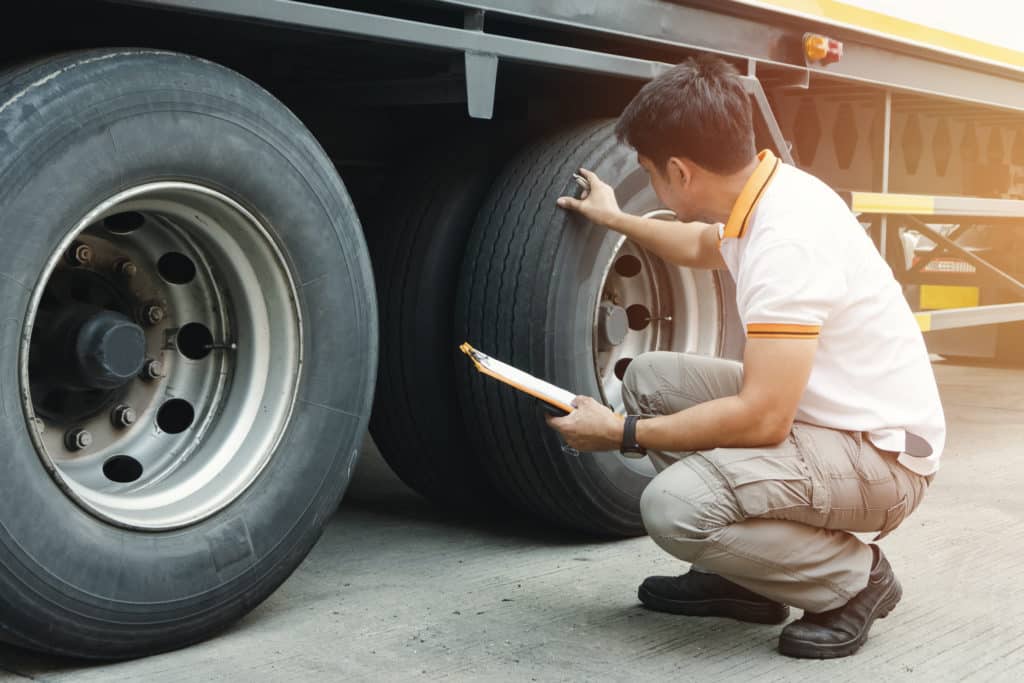Maintenance is the key to any semi truck tire’s life, and if you take care of your tires properly, it will reward you with a long-lasting, safe ride. However, if taken for granted, tires can become worn or damaged too quickly — both of which are expensive tire repairs. This blog post includes tire maintenance tips for your tire’s performance and lifespan by often inspecting them for irregular wear, cuts, cracks, bulges, or penetrations.
Tips for Semi Truck Tire Maintenance
Keeping your tires in good working order is necessary while dealing with semi trucks, whether you’re a truck driver or a fleet manager. Aside from that, maintaining your tires in excellent operating condition might improve fuel efficiency and extend the life of other truck components, such as the suspension system and brakes. To keep your tires in better shape, follow these semi truck tire maintenance tips:
Selecting the Right Tires
Ensure your truck is equipped with proper semi truck tires for different weather conditions, terrains, and loads. Don’t hesitate to ask a tire expert about which type of semi truck tires will work best on your rig. Be sure to account for where you drive most of the time when deciding. If you’re unsure what tire would be best suited for your truck, it’s wise to start with a general all-purpose tire.
Read More: Semi Truck Tire Guide
Wheel Alignment and Tire Rotation
Between the first 15 to 30 thousand miles or the first three months of your truck’s life, your semi truck tires will require wheel alignment to ensure uniform tire wear. Additionally, it is best to rotate the tires on your semi truck when the tread reaches half of its original depth. When rotating, keep the same tire pressure in each semi truck tire. Doing so will help maintain uniform ride quality and prevent irregular wear on individual tires.
Cold Inflation Tire Pressure
Remember that it’s important to always inspect your semi truck tire inflation before driving away after an extended period or overnight storage — even if you have not used your semi truck for a while.
Freezing temperatures can cause the pressure in your tires to drop over time, even if you maintain a consistent speed. This affects fuel efficiency, tread life, and overall safety on the road. Moreover, ice forming on the valve core in below-freezing weather can cause slow pressure leaks, which a valve cap can prevent.
Most fleets should perform a weekly tire pressure check to ensure that your vehicle’s frame and other components are not put under too much strain by under- or overinflated tires.
Cleaning Tires
It is important to clean semi truck tires regularly because dirt and mud can reduce traction on wet or dry roads. Thus, leading to skidding off the road if you’re not careful. To properly maintain tire tread life, check for debris stuck in the grooves of your tires. Also, be sure to remove any mud or rocks that might become lodged in between the tire treads.
Pre-trip Inspections – often inspect for irregular wear, cuts, cracks, bulges, penetrations.
Driving safely requires more than just paying attention to the road. For example, before taking your semi truck on a trip, you must always inspect it. Look for any problems that could cause an accident down the line. This includes tire pressure or irregular wear in tires – which can be signs of under-inflation or overloading.
Also, check if there are any cuts, cracks, or bulges in the tires. Penetrating objects from nails to ice can cause tire failure and accidents — so it’s best to have them removed as soon as possible before hitting the road.
Driving Behaviors & Your Semi Tires
Your semi truck tires will last longer if you follow the tire maintenance tips above. However, other things need to be considered for safety and fuel efficiency purposes – driving behaviors being one of them. Keep in mind these semi truck driving tips:
- When fully loaded or pulling a heavy load, drive slower than the speed limit.
- Keep a safe distance from other vehicles and the vehicle in front of you; this will help decrease your stopping time and avoid rear-end collisions or accidents.
- Remember to always inspect for flat spots on tires before driving away after overnight storage. Even if it’s just been a few hours since you used your semi truck.
- Maintain a proper stopping distance to avoid accidents.
- The typical speed rating for semi trucks is 75 mph. However, matching the speed requires recommended inflation PSIs.
Many factors can lead to semi truck tire problems. You may not even know your tires need maintenance until it’s too late. Preventative measures like regular inspections and driving behaviors should help you avoid these costly repairs, but if you do experience a problem with any of your semi truck tires, don’t hesitate to call the professionals at Bozz Towing. Our team has years of experience in all areas related to commercial vehicle roadside assistance services. We are happy to take care of your towing needs. Contact us today for semi truck tire service in Utah and Wyoming.

